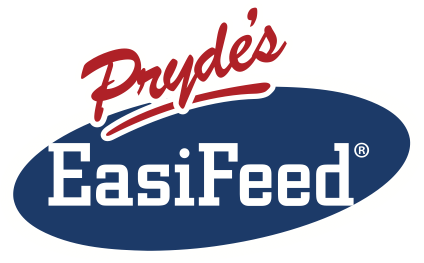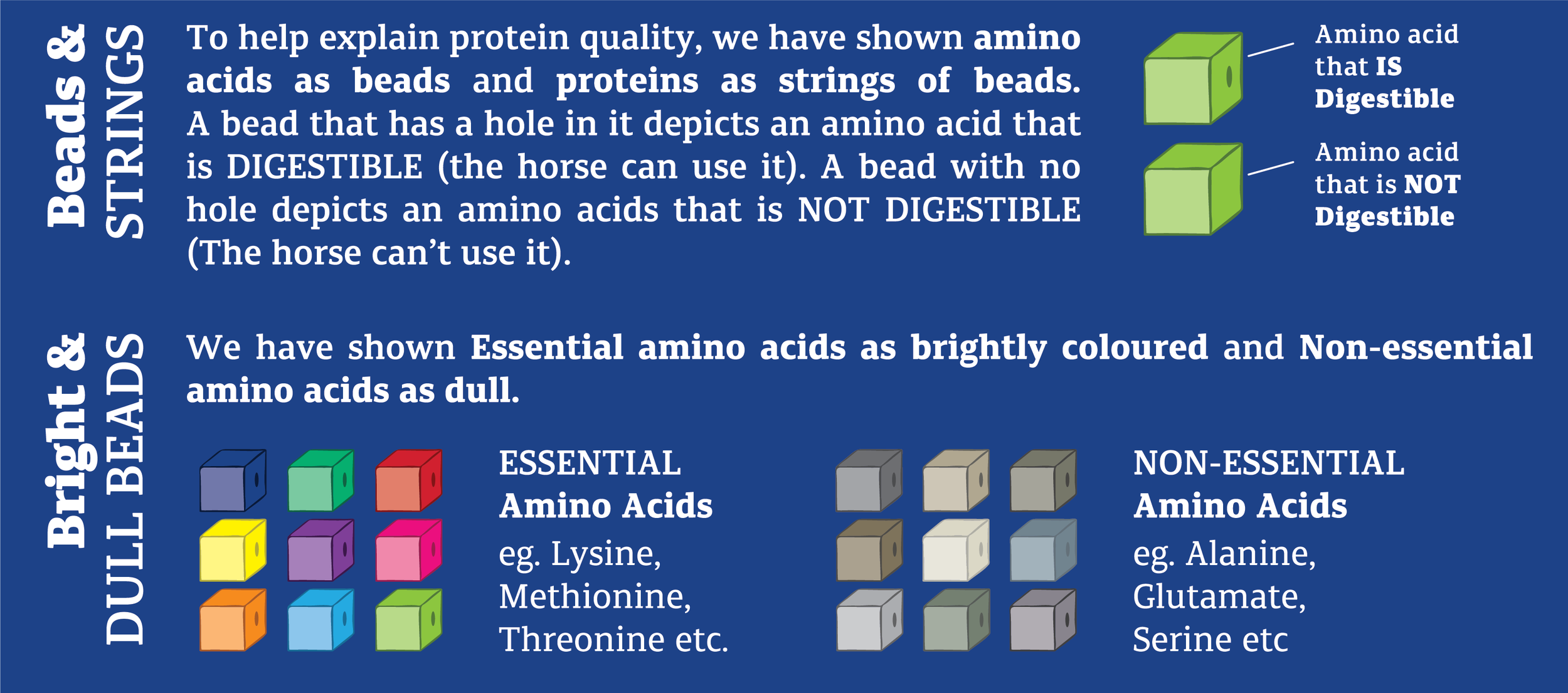PROTEIN: Quality Matters!
Every feed contains protein, but protein quality is what actually counts most. High quality protein provides horses with what they need to grow, build muscle or make milk. Poor quality protein is of limited use to the horse.
Proteins are made of amino acids. There are 21 different amino acids. Horses can make 12 of these amino acids themselves, so they are called ‘non-essential amino acids’. The remaining 9 amino acids cannot be made by the horse, so have to be eaten by the horse in its feed. These are called the ‘essential amino acids’.
HIGH QUALITY Protein
High quality proteins contain LOTS of essential amino acids in similar proportions to what a horse needs AND the amino acids are DIGESTIBLE (ie. can be absorbed and used by the horse). Soybean meal, extruded full fat soy, lupins and faba beans are all high quality protein sources.
Diets containing sucient high quality protein result in great topline, strong bones and plenty of milk.
LOW QUALITY Protein
Low quality proteins are LOW in essential amino acids &/OR the essential amino acids that they contain are NOT DIGESTIBLE (ie. not available for absorption and use by the horse). Cottonseed meal, sunflower meal and linseed meal are examples of low quality protein.
Diets containing low quality protein result in poor topline, development issues and insufficient milk production.
MUSCLE Building
To build proteins, the horse’s body has to assemble specific amino acids (that are also digestible) in the right order. The specific amino acids needed and the order they need to go in differs depending on which type of protein is being made (eg. muscle protein, milk protein etc). Amino acids that aren’t used to make proteins can’t be stored, so they are used for energy. The excess nitrogen is excreted in urine and too much protein in a diet will make your horse drink and urinate a lot. This can lead to wet boxes, a strong ammonia smell in bedding (which irritates airways), electrolyte deficiency and dehydration. Hence it’s best to feed horses smaller amounts of high quality protein.




